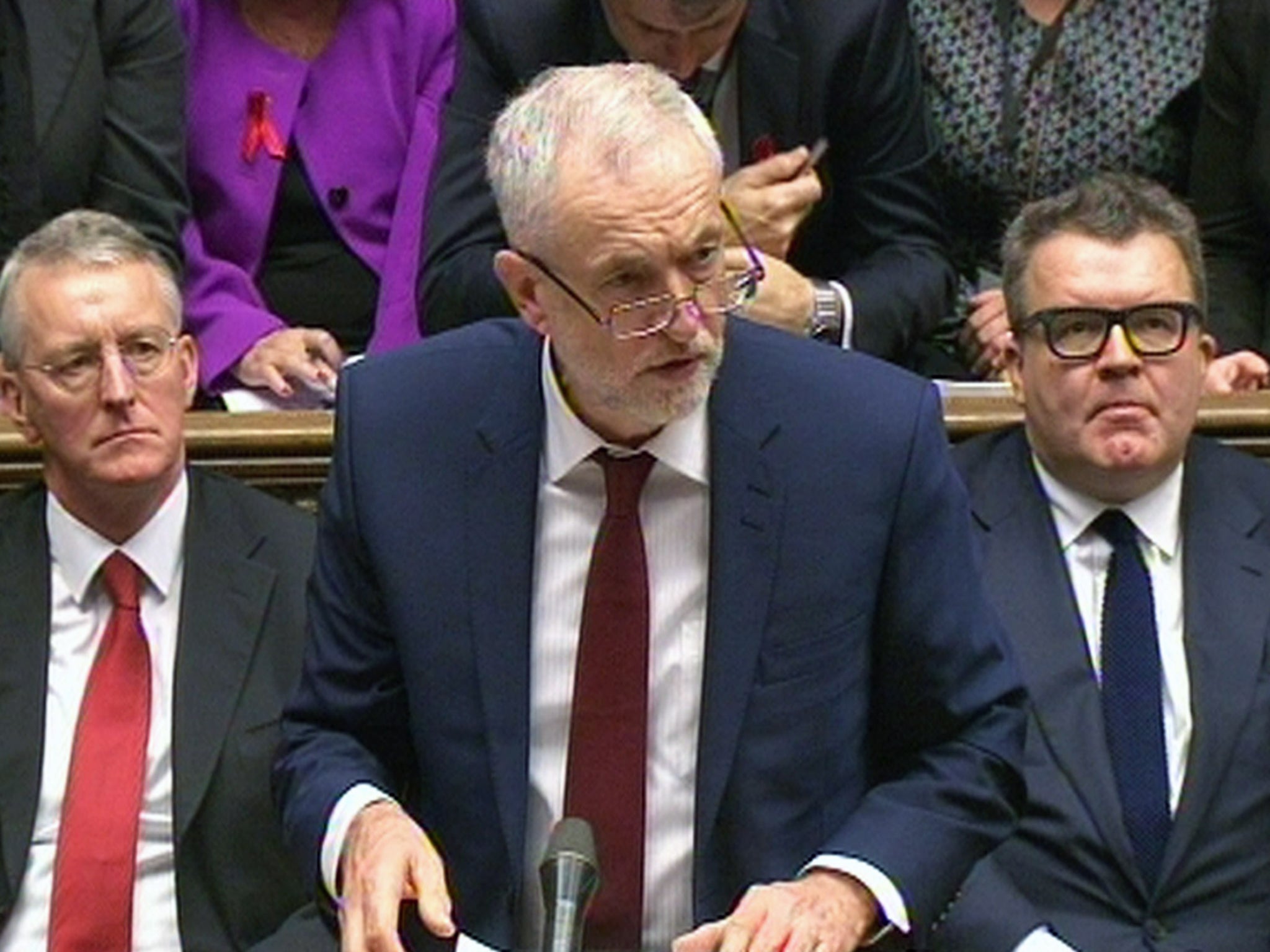David Cameron and Jeremy Corbyn have both lost the argument over air strikes
There was no sense of occasion in the Commons for today's crucial debate. If this is the new politics, we want the old politics back

This was not Parliament’s finest hour.
Normally when matters of national importance are debated there is sense of occasion in the Commons chamber. Opposing views are listened to respectfully and bar room barracking is temporarily laid aside. But not today. And both David Cameron and Jeremy Corbyn deserve a share of the blame.
The Prime Minister got things off the a bad start by telling Tory MPs last night that those colleagues who planned to vote against airstrikes were siding with "terrorist sympathisers" – a clear jibe at the opposition leader. He then compounded the insult by refusing to apologise – despite around half a dozen interventions from Labour MPs calling on him to do so. And his speech was not one of a leader trying to unite the nation behind him. It was scratchy, at times defensive and sounded like it had been pulled together in a hurry – which in all probably it had.
On the issue of the 70,000 so-called ‘moderate’ forces that could take advantage on the ground of British airstrikes Cameron appeared to back track on his previous statements. He admitted that these forces were not all "ideal partners" and often had an ideology that we “don't agree with”. He was also weak on the potential for civilian casualties. He claimed the Government had a target of zero civilian casualties from British military action in Syria. He then went on to say that in a year and three months of British air strikes in Iraq there have been "no reports of civilian casualties".
The key word here is 'reports'. The truth is that ISIS controlled areas of Iraq and Syria are far too dangerous for any kind of reporting or observation from independent monitors. So if - and very probably there have been - civilian casualties we almost certainly just don't know about them.
But Jeremy Corbyn’s response was not any better really. He is not a great public speaker at the best of times but today his case for opposing war was distinctly underwhelming.
He pointedly failed to answer a question put to him by one Tory backbencher about why he opposes airstrikes when he himself says cutting off Isis's oil supplies is key to defeating the group. Are airstrikes not the best way to cut this supply by eliminating infrastructure, he was asked? Corbyn waffled a bit about needing to find out who buys the oil, who funds the operations and whether banks are involved. He needed to do better than this.
He failed to say whether he now supported airstrikes in Iraq. He voted against the plan (and the Labour whip at the time) but now appears to be sitting on the fence. He also claimed that bombing in Syria would place Britain at greater danger from terrorist attack – but failed to explain why - when we are already bombing Isis in Iraq – bombing Isis in Syria would increase the threat level significantly.
So neither side made their case compellingly. Neither side won the argument. If this is the new politics – you kind of want the old politics back.
Join our commenting forum
Join thought-provoking conversations, follow other Independent readers and see their replies
Comments
Bookmark popover
Removed from bookmarks